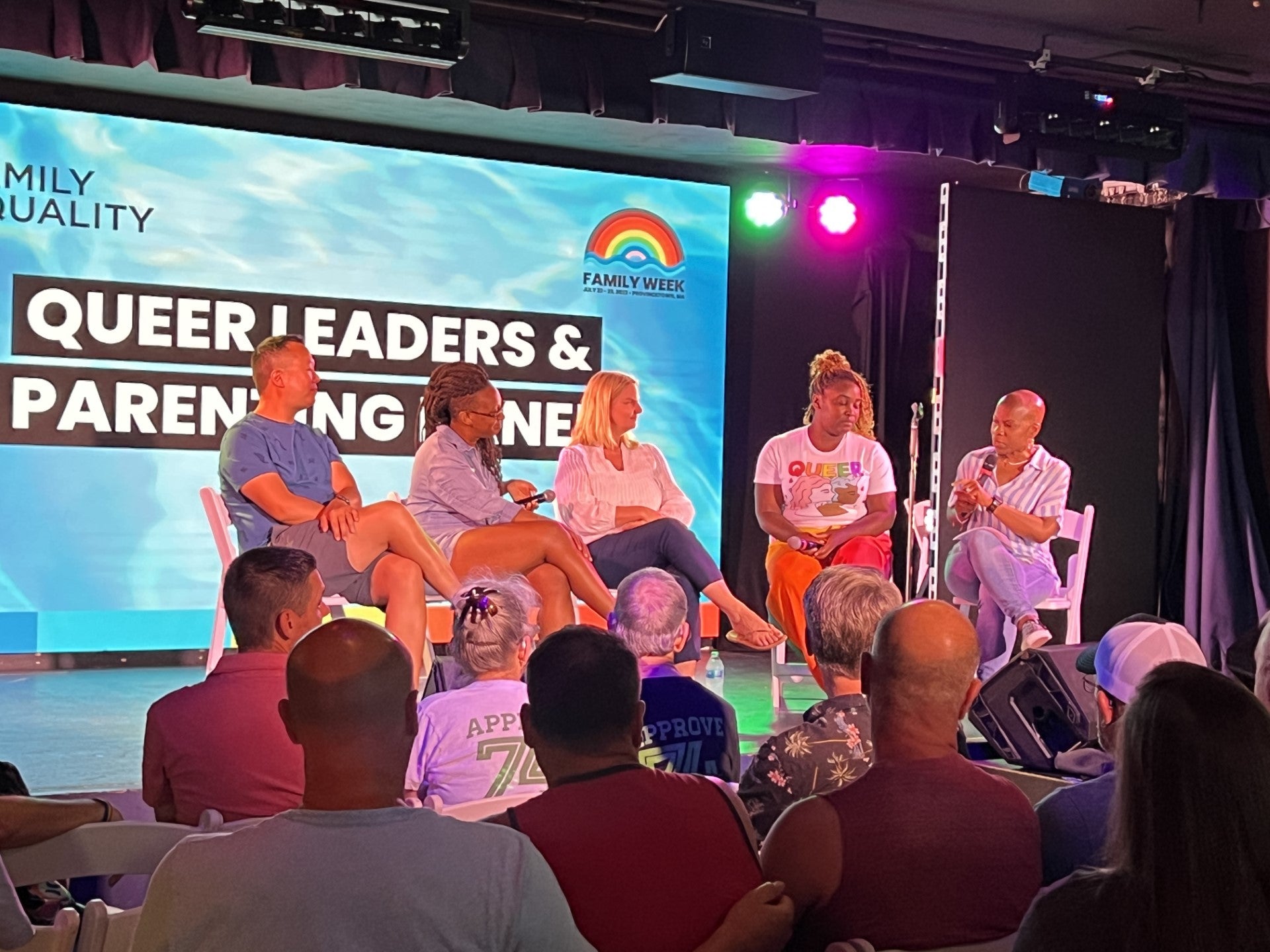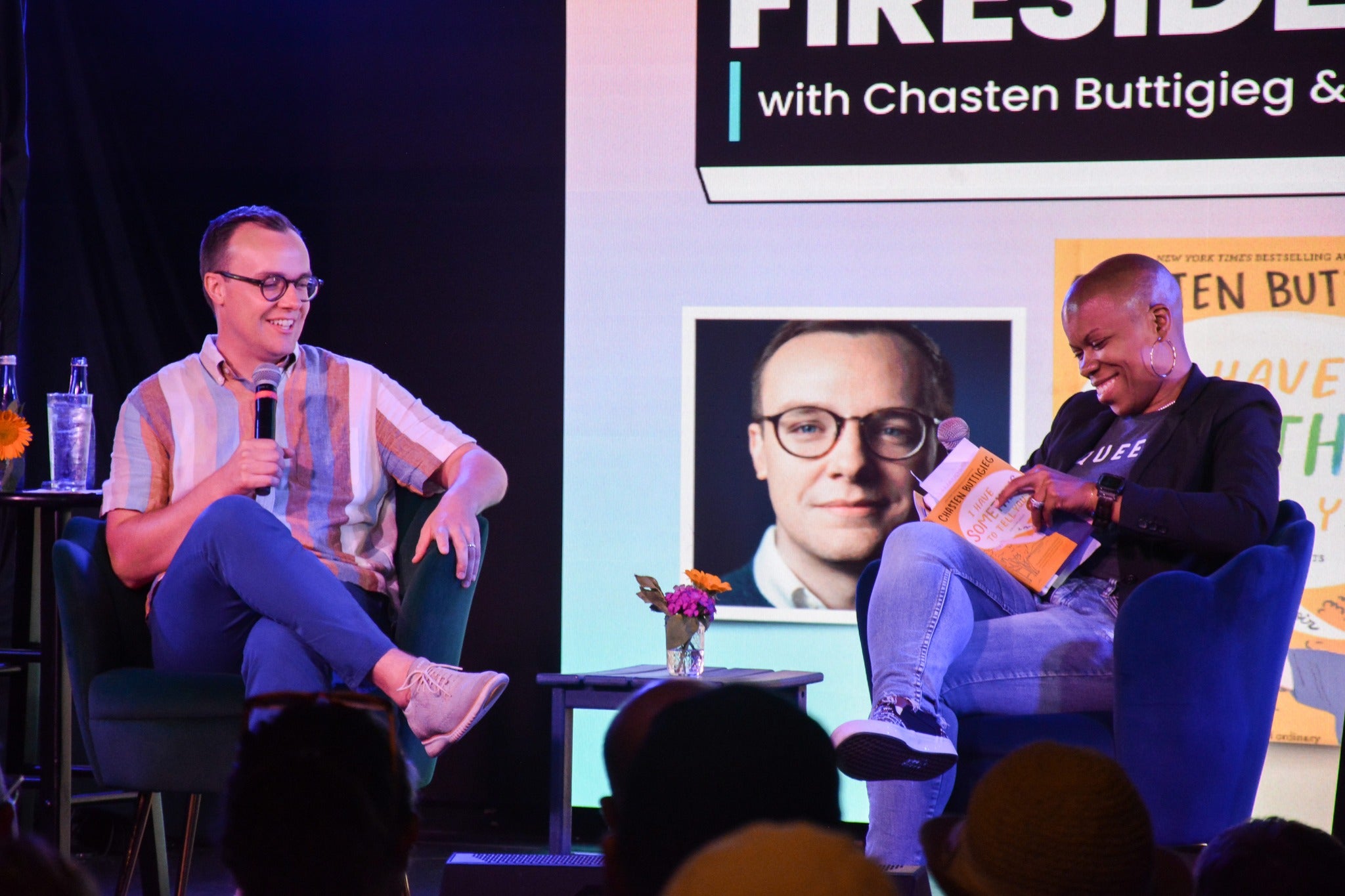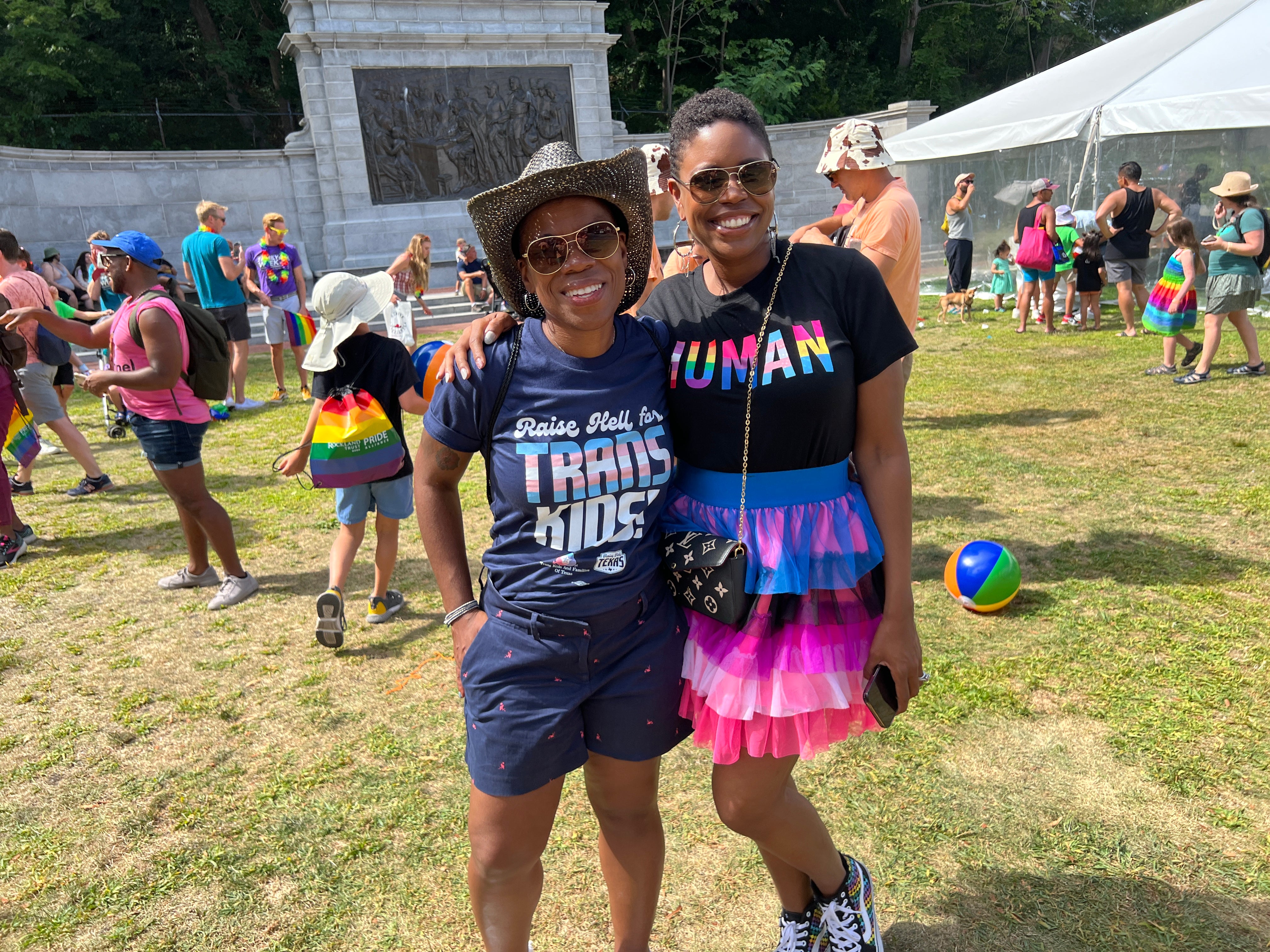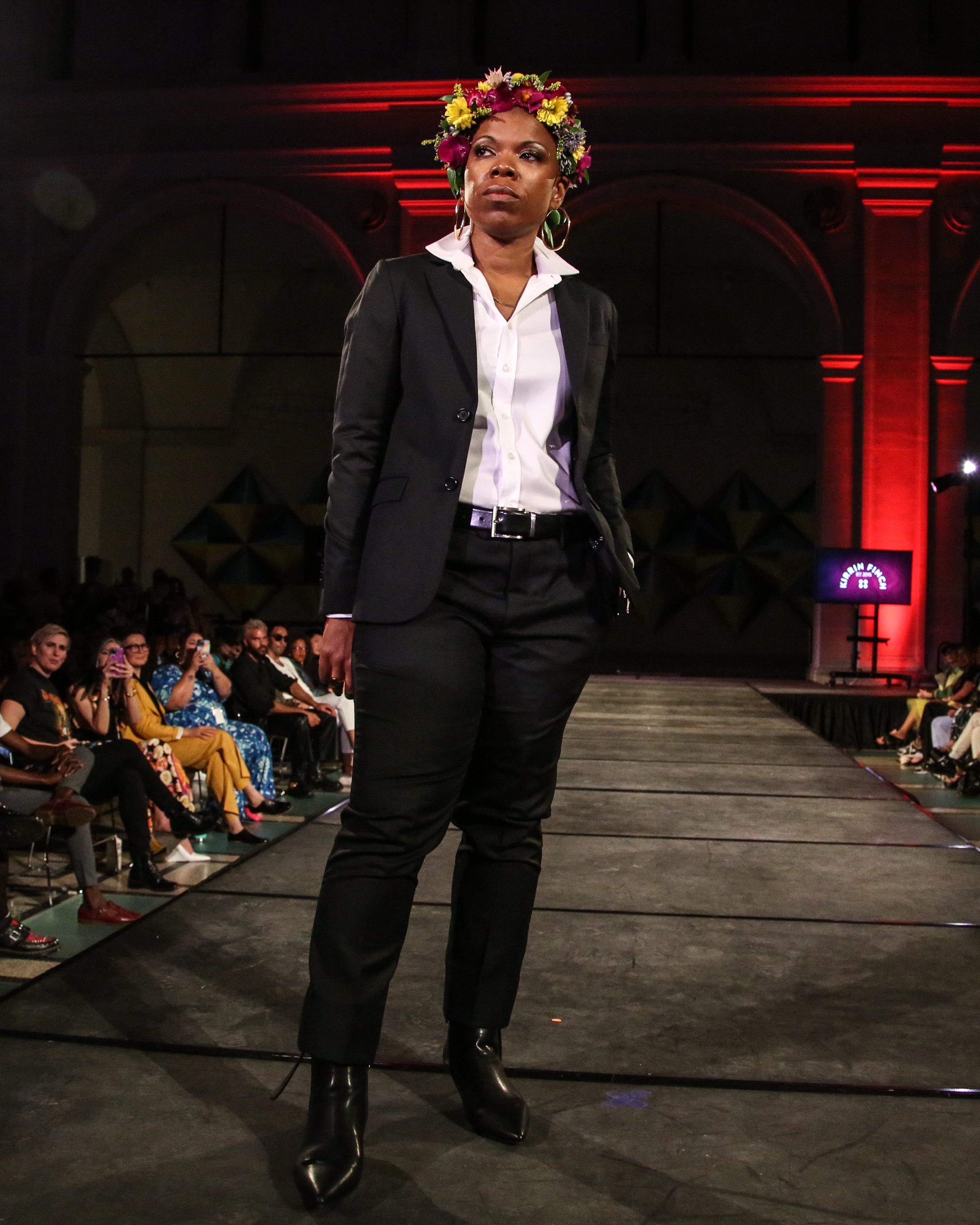As we delve into Black History Month, we’re celebrating a trailblazing individual who has been making waves in LGBTQ+ leadership and advocacy. Meet Jaymes Black, our featured Dapper Scout. In 2021, Jaymes made history by becoming the first Black Chief Executive Officer of Family Equality, a pioneering organization dedicated to advancing equality for the LGBTQ+ community. Their dynamic leadership has not only broken barriers but has also earned them a well-deserved spot on Out Magazine's prestigious Out100 list in 2022—a testament to their impactful and influential contributions. Jaymes also joined us on the runway this past september for our DapperQ runway show! Join us as we delve into Jaymes’ inspiring journey in finding their calling, and their true self.
Could you share a bit about your personal journey to becoming the President and CEO of Family Equality?
I've had an exciting and non-traditional path to leadership. I refer to myself as a kid who dropped out of high school (Dropped out after being outed), turned corporate exec, turned nonprofit CEO. I left my hometown with $70.00 in hand when I was 21 to create a better life.
I moved to Dallas, Texas, where I established myself and worked various jobs. I started growing curious about becoming a leader. I saw firsthand how good and poor leadership impacted people's culture and a company's bottom line. I saw how much of the leadership I witnessed was ego-based and chest-beating. I decided I could do better, so I worked my way up the corporate ladder and became a leader. I started college and completed my bachelor's degree. I worked my way into prominent leadership roles and later finished my MBA, and over a twenty-year period, I worked at multiple global organizations in leadership positions.
In a moment I call "Covid Clarity' 'during the pandemic, I decided to leave Corporate America, and move to the nonprofit sector. I now have the privilege of leading the only national organization fighting to protect current and future LGBTQ+ families. This mission is personal as my wife and I experienced challenges building our family.
As the leader of Family Equality, what do you believe are the most pressing challenges faced by LGBTQ+ families today, and how is the organization addressing these challenges through its initiatives?
I would narrow the most pressing challenges for our families down to three issues:
1. Community and Connection
2. Equity and Justice
3. Family Building w/out legal and social barriers
Community and Connection
Our families need connection and community now more than ever. Family Equality provides virtual spaces for families to connect and find support. Currently, we host three peer support groups:
1. Trans, Nonbinary, and Gender Nonconforming Parents Meetup (1hr, twice a month)
2.Trying to Conceive/Fertility Peer Support Space (2hrs, twice a month: our most popular)
3. Navigating School Challenges as LGBTQ+ Parents (1hr, once a month)
For almost 30 years, Family Equality has hosted the largest LGBTQ+ family gathering in the world. This past July, we welcomed 1,600 registrants and held over 32 events. Families traveled from 38 states and 7 countries outside of the United States to come to Family Week.
Equity and Justice
Family Equality is developing a first-of-its-kind survey focused on uncovering and tackling key unaddressed needs of Black, Indigenous, and People of Color (BIPOC) LGBTQ+ families, including those living in poverty nationwide. This survey is part of a larger effort to better understand how LGBTQ+ BIPOC families find, form, and create their families. It shifts and centers racial and economic justice in our policy and programmatic work.

Family Building
Legal, social, and economic barriers prevent LGBTQ+ people from starting, protecting, and sustaining families. Our approach to protecting the right to build our families is multifaceted. We develop and publish resources such as our state-by-state adoption guide, and we are working at the federal and state levels to protect our families and the right to create a family in whatever a person or couple chooses; for example, at the federal level, we are working to pass legislation that will bar discrimination in all tax-payer funded child welfare services on the basis of sex, sexual orientation, and gender identity which will ensure LGBTQ+ people can foster and adopt without barriers.
What is it like to be a queer parent in 2024? Specifically, what are the joys and challenges that you face?
It's always a joy to be a queer parent, but 2024 is particularly challenging due to the increase in anti-LGBTQ+ rhetoric. I must balance how I show up as a parent and not allow the state of affairs to affect me. As an LGBTQ+ parent, it takes so much time and intention to create our families, so I want to enjoy every moment of it. Some of the specific joys are hearing my kids proudly talk about their two moms, witnessing my children organically find their own identities, and hearing the word mama or mom still gives me chills as if I am hearing it for the first time.
Regarding challenges, it can get daunting to continuously educate society (schools, family, neighbors, etc.) about our families. Every new space we enter is another coming out. While I understand it's necessary, I look forward to the day when people's idea of families is expansive, and we and our children do not have to explain a thing.
As someone in a prominent leadership position, do you feel that your personal style sends a message to LGBTQ+ individuals and families within the organization and the broader community? What message do you hope to convey through your style?
As a Black girl growing up in south Texas, I never quite fit in. I didn't look like the other girls or dress like the other girls. Back then, I hated dresses and would cry if my grandma forced me to wear one to school. I longed to be as pretty as my little sister. Simply put, I could not explore both sides of myself (masculine and feminine). It just wasn't going to happen in a Southern Black family. I discovered and accepted that I could live outside the prescribed lines in my late forties.
I hope that my personal style conveys a needed departure from societal expectations or conditioning for women of color, in particular, who face heavy societal and cultural condemnation when they do not fit into established norms.
I honor both my masculine and feminine energies. Not only in who I am but in how I see style. I love wallets, and at the same time, I love purses. I love makeup, and at the same time, I love suits, heels, and combat boots. Mixing those two worlds is a beautiful process. I feel most authentic when my style represents both of those energies.

What advice would you offer to emerging leaders who aspire to make a positive impact in the LGBTQ+ advocacy space?
Realize and understand that we are in an evolutionary moment in the LGBTQ+ advocacy space. We cannot rely on what we've always done; we must think differently, employ new strategies, get uncomfortable, and put our egos aside if we do not evolve. We will not win.
How did it feel to represent Family Equality with the message of "Respect All Families" in the most recent DapperQ Fashion show?
How did I feel?? Like a damn superstar! It was a beautiful and proud experience. I felt self-assured and hopeful about our mission and future walking down that runway with the messaging.

Why did you change your name to Jaymes Black?
I remember when the name Jaymes first popped into my consciousness. It was around 4 or 5 years ago. I was still working in corporate America. The name felt right; I knew it was my true identity, but it scared me. So I kept it a secret, and I was secretly trying it on, but I wouldn't dare tell anyone. In early 2022, I became more comfortable with the name, but I told just three people about it, including my wife. I was still fearful.
BUT The universe has a funny way of using tragedy to wake us up to the things we need to see and experience so that we live the truest version of ourselves. It was in late 2023 that I received the wake-up call. I knew I could no longer live as Stacey.
As a genderqueer person, I wanted a name that truly represents all of me, not what my parents wanted me to be, not what society dictates. And while I honor the journey I walked as Stacey Stevenson, Jaymes represents the most authentic, most free, most self-aware, most queer me.















